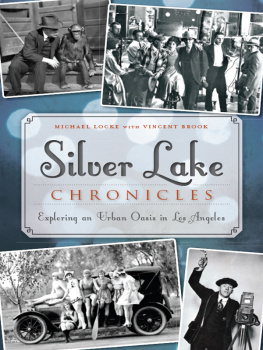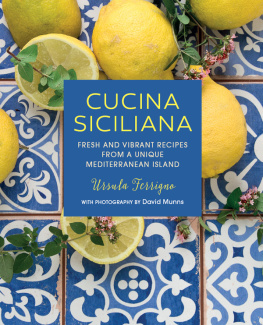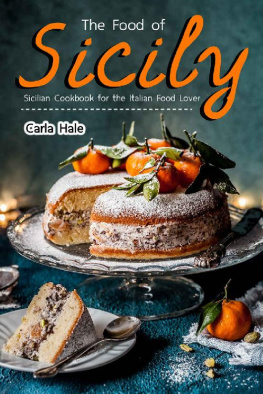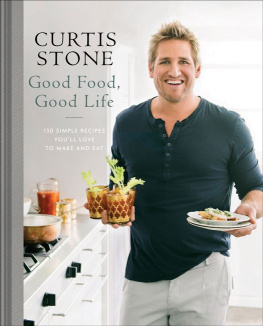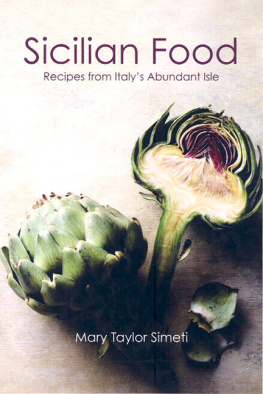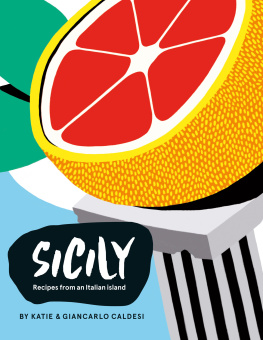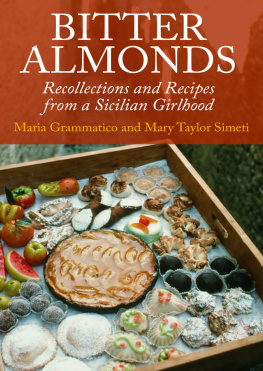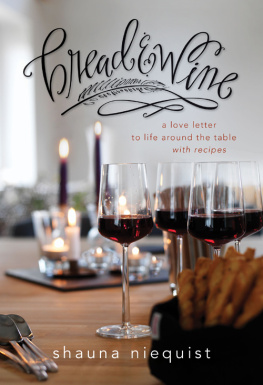For Saro, who lit the fire of love
For our daughter, Zoela, the eternal flame
Think not you can direct the course of love, for love, if it finds you worthy, directs your course.
KAHLIL GIBRAN
PROLOGUE

I n Sicily, every story begins with a marriage or a death. In my case, its both. And so it was that I found myself driving a rusted Fiat through a winding country road on the outskirts of Aliminusa, a small Sicilian village, with my husbands ashes in a small wooden box tucked between my legs. I was about to break into an olive grove in the rural foothills of the Madonie Mountains on the islands northern coast; it was Saros familys sloping land, dotted with old-growth apricot and pear trees.
Along this road, he had once plucked ripe berries from the mulberry tree; he had twisted the stems of plump grape clusters from the vine; he had unearthed soil with his hands to show me exactly how the bulb beneath wild fennel grows. I had watched him pull back layers of the bulbs outer skin. Then he made me close my eyes. He brought its heart close to my nose, bidding me inhale the earthy licorice scent, awakening me to the mysteries of this place. He was intent on showing me the strength and delicacy of this natural worldhis birthplace. Last summer, we stood surveying the hills where he had played as a child.
Do what you will, but bring some of my ashes to Sicily, Saro said to me last summer, as we stood on this very spot. His cancer had recently returned, but his death still felt like an abstract thing. I thought we had a few more summers ahead, maybe five. Still he was preparing, and he was preparing me. This was the place he wanted part of himself to remain forever, so here I was, having flown nearly seven thousand miles from our house in Los Angeles in order to keep my promise that I would do so.
The sounds of late-summer crickets and cicadas and the scurrying of lizards taking refuge from the setting Sicilian sun surrounded me. The air was thick with the intoxicating scents of eucalyptus, burning wood, and ripening tomatoes. In the distance, the town church bells struck, calling people to afternoon Mass. For a moment, I imagined my seven-year-old daughter running barefoot on the cobblestoned street. She was the other reason I had cast myself on Sicilian shores, the only way I knew to keep her dad alive in her memory.
I pulled the car over at the top of a steep hill, put it into neutral, and double-checked the brake. Then I pried the box containing my husbands remains from between my thighs, sticky with sweat. The little wooden ring box where he had once kept his guitar picks now contained a portion of him I had saved for myself. It left a design of vertical lines on his favorite spot in my flesh. The time had come. Yet I couldnt bring myself to get out of the car.
Saro, a chef, had always said he married an American, an African American woman, who had the culinary soul of an Italian. In his mind, I was Italian the way all people should be Italian: at the table. Which to him meant appreciating fresh food, forging memories and traditions while passing the bread and imbibing local wine. It was a life I had stumbled into by chance when we literally collided underneath the awning of the best gelateria in all of Italy. Luck, fate. One look and I could see he had the kind of deep brown eyes that carried stories and that would entice me to tell mine. His profile could have been lifted from an ancient Roman coin, and his configuration of featuresolive skin, firm jawline, and head of wavy, charcoal black hairconjured a vision of me entangling myself with his body that came to me like a crack of lightning on a clear day. I said, Mi scusi in my best college Italian. He said, Hello back without a moments hesitation. Right then, the fire met the pan.
I could see now that Saro had appeared in my life and almost instantly created form where there had only been space. He soothed the places I hadnt known needed soothing, seemed perfectly willing to embrace the parts of me that were wanton, unsettled, unfinished, and contradictory. Together we had engaged life as two forks eating off one plate. Ready to listen, to love, to look into the darkness and still see a thin filament of moon.
Finally I cracked the car door and cooler air flooded in, along with more memories. I thought about Saro and the last earthly pleasure we had shared together, a rocket-shaped ice pop. The specificity of the memory overwhelmed me. It took me right back to our last day. When the expanse of our life and everything in it had been reduced to the tiny intimate gestures death necessitates: feeding my dying husband an ice pop. How I had put it to his lips, having troubled the hospice nurse to take one out of the freezer at the top of every hour, just in case he awakened and was able to eat one. It was delicate, steady care I wanted to offer, my final acts as his caregiver and lover. I wanted the last sensations on his palate to be soothing, soft, and even pleasurable. He deserved that. During years of standing beside him in the kitchen, he had taught me that details are everything. The impact of the first taste happens only once. If ice pops were required, I decided, they would be the most inspired ice pops: freshly squeezed lemonade with a touch of agave.
In those final days, there were both compression and elongation of time. And although I did my best to prepare our daughter, Zoela, who had just turned seven, for a life without her dad, to keep her close, to include her in the event that would change her life forever, I worried that I had not done enough.
On the final day, I closed the pocket doors to our study and sat beside him on the hospital bed. I rubbed the melting treat against the flesh of his lips. A lifetime of kisses had been mine for the taking from those lips. Then I kissed his forehead, and when I pulled back I could see that a bit of the juice had met his tongue. He never took his eyes off me. I licked from the iced juice, too. He smiled. We had exchanged a moment of pleasure, just as we had in the beginning when hed whispered in my ear after we made love, I have an endless thirst of love, the love of your body and soul. And then he was gone.
His death put pan to flame once again. All the strength I had gathered as a woman, mother, and lover wilted, instantly and completely. It was like being flung onto jagged rocks at low tide, belly up at high noon on the longest, hottest day of the longest year of your life. There seemed no bottom to my grief, no way out, just through. Through darkness, isolation, and the deprivation of his touch. But it was my final promise to him that had brought me, months later, to this orchard in the heart of the Mediterranean, desperate for a sliver of light.
The last church bell rang, and I held the ring box of ashes in my hand. Amore, lho fatto I did it. I have brought us this far. I got out of the car.
The setting sun reminded me of our first road trip together through Sicily, when we had driven the remote interior. There had been nothing to see but mountains, wheat fields, cows, men on donkeys, and untold olive groves. We couldnt get radio reception, so we ended up talking for hours along the winding roads, with interludes of silence and the endless downshifting and upshifting of the tiny Fiat. I remember that the afternoon light was another passenger in the car, witnessing two lives in motion. Now the sun was again my witness, as I finally stood free of the car and fully erect. The earth felt slightly loose beneath my feet.
Before me stood a large iron gate and colonnade of country stones, compacted earth and clay, stacked on top of one another to flank the gate. It created an impressive but simple rustic entrance. Along either side of the main entrance ran a barbed-wire fence atop a stone retaining wall. It separated the family land from the road. I looked at the fence and walked a tiny bit of the perimeter in the hopes of finding an easy opening. There was none.



